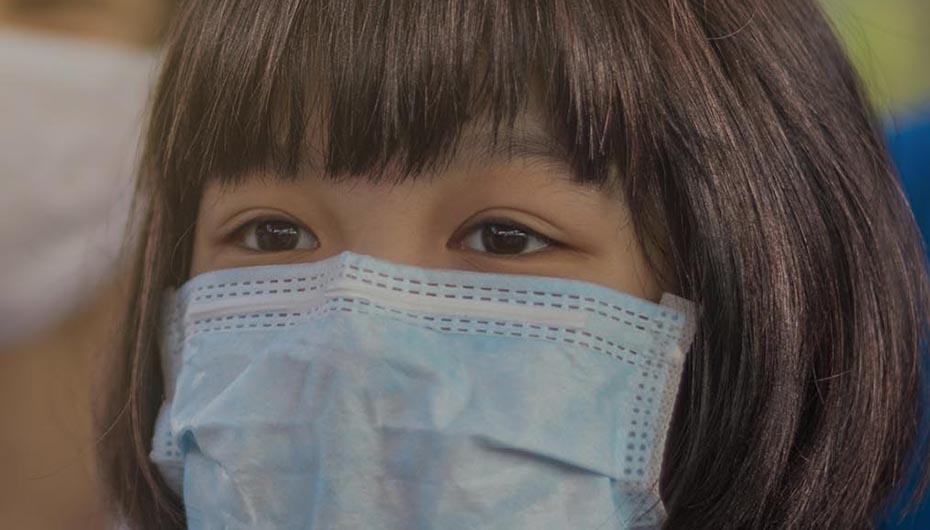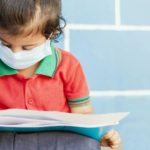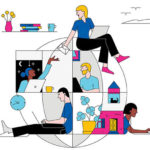Media Centre - Media release - 26 March 2020
Plan International Australia releases guide to talking to children about the COVID-19 crisis

Media contact: Claire Knox, 0452 326 549/ claire.knox@plan.org.au – guide is available for download here. Plan International Australia CEO Susanne Legena and psychologist Karen Young are available for interviews.
Plan International Australia has today launched a guide to help parents and carers navigate some of the difficult conversations and situations that may come up with children during this daunting pandemic.
The How to help children cope with the COVID-19 pandemic guide, co-authored by psychologist and child-anxiety specialist Karen Young, offers parents and carers simple tips on how to support children who may be distressed by the sudden and shocking changes to our daily lives and the constant news cycle.
Plan International Australia has drawn on many decades of experience delivering hygiene and sanitation programs abroad, to provide illustrated hand-washing steps for children in the guide, as well as important advice on educating children about how they can play a role in stopping the spread of the virus.
The guide also includes valuable resources on how to keep children engaged, happy and learning whilst we are confined to our homes and minimising contact with our communities and loved-ones.
Research from the Australian Catholic University has shown that between 7% and 45% of children suffer depression, anxiety or distress after experiencing a natural disaster or crisis.
Plan International Australia CEO, Susanne Legena, said children are witnessing one of the most challenging and significant events of a generation.
“By now, children will have heard about the virus; they may have family members who have been quarantined after returning from international travel, or they might even know someone who is sick. Children may be feeling overwhelmed, sad and stressed, so it’s critical in a time like this to ensure they feel protected and comforted,” she said.
“Thankfully, from a health perspective children do appear to be less impacted by the virus than adults, nonetheless we are worried about the psychological impact this could have on children. COVID-19 will no doubt have a profound impact on the environment in which our children grow and develop.
“What’s more, the challenges for children, particularly girls, ranging from disruption in education, increased risk of sexual violence and mental health risks, will be much greater in lower-income countries.
“Right now, our work to make sure that all children thrive, and that no one – especially girls – is left behind, has never been more important.”
Plan International Australia works every day to support children around the world who are caught up in emergencies and crises. Drawing on our experience of responding to medical emergencies such as the 2014 Ebola outbreak in West Africa, our response to COVID-19 will focus on working with communities, national governments and partners to tackle the spread of COVID-19 through dissemination of public health information, promotion of best hygiene practices, including installation of hand-washing facilities and intensifying preventive measures in refugee and displaced camps.
“After 80 years of working with children in vulnerable communities, we have learned that kids are better able to comprehend uncertain times such as this when they feel comforted and reassured of their safety and when they know they are not alone in their feelings,” Ms Legena said.
“We have also learnt that parents and carers are often the best people to alleviate anxieties in children and we encourage them to have open, supportive discussions to help children cope. It can be hard to know where to start, and that’s why our experts in child protection have created this guide,” she added.
Psychologist Karen Young said the COVID-19 health crisis could fuel anxiety, distress and even depression in young people and that it is critical that parents acknowledged their feelings and provided reassurance.
“Children might respond in many different ways to news of COVID-19. They might feel scared, sad, confused or they might feel nothing at all. Let them know they aren’t alone, and that whatever they are feeling is completely understandable,” Dr Young said.
The guide offers practical steps to approach these conversations with young people, including:
- Letting children know that what they are feeling is ok. Validating fears and feelings, but from a position of strength;
- Reassuring children who express fear or anxiety, but answering questions honestly, with as much information as they need to feel safe;
- Helping children understand they are not alone and reminding them that there is a community of emergency workers, charities and people around them doing good;
- Talking to children about the importance of how to protect themselves and others from COVID-19 through good hygiene and sanitation practices, including an illustrated hand-washing guide;
- Equipping parents and carers with child-friendly ways to explain the facts and symptoms of COVID-19
- Ways that children can help others in their community through the crisis
- Tips, activities and resources on keeping children happy and entertained whilst self-isolating, as well as advice on routines, structure and education.
About Plan International Australia
Put simply, we’re the charity for girls’ equality. We tackle the root causes of poverty, support communities through crisis, campaign for gender equality, and help governments do what’s right for children and particularly for girls. We believe a better world is possible. An equal world; a world where all children can live happy and healthy lives, and where girls can take their rightful place as equals.
Media contacts


